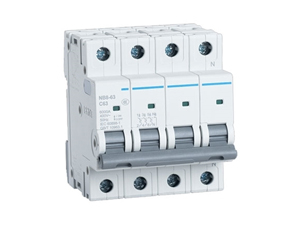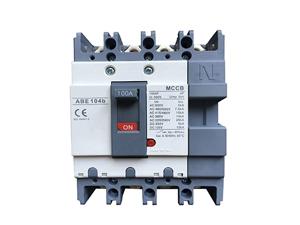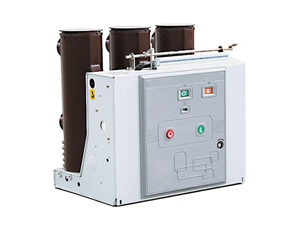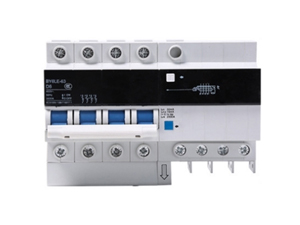What are the Types of Circuit Breakers?
A circuit breaker is an electrical safety device designed to protect an electrical circuit from damage caused by overloads or short circuits. It works by automatically interrupting the flow of current when it detects an issue, preventing damage to the wiring and reducing the risk of fire or further equipment failure. Have you ever wondered what the letters in circuit breaker abbreviations stand for? Let's delve into the meanings behind these abbreviations and the types of circuit breakers they represent.
Different Types of Circuit Breakers
ACB - Air Circuit Breaker (Universal Circuit Breaker)
ACB stands for Air Circuit Breaker, also known as a Universal Circuit Breaker. This type of circuit breaker is designed for high current applications and protects against overloads and short circuits in electrical systems.
MCB - Miniature Circuit Breaker

MCB stands for Miniature Circuit Breaker. This compact circuit breaker is commonly found in residential, commercial, and industrial electrical installations. It is designed to protect circuits from overloads and short circuits.
MCCB - Molded Case Circuit Breaker

MCCB stands for Molded Case Circuit Breaker. This circuit breaker is enclosed in a molded case and is larger, commonly used in industrial settings. It protects overcurrents and short circuits and is capable of handling higher currents and voltages compared to MCBs.
ELCB - Earth Leakage Circuit Breaker
ELCB stands for Earth Leakage Circuit Breaker, also known as a Residual Current Device (RCD) or Ground Fault Circuit Interrupter (GFCI). This type of circuit breaker detects leakage currents to prevent electric shocks and protect against ground faults.
VCB - Vacuum Circuit Breaker

VCB stands for Vacuum Circuit Breaker. This circuit breaker uses a vacuum as the arc quenching medium to interrupt currents in high voltage systems. Vacuum circuit breakers are known for their high reliability and performance in electrical networks.
RCCB - Residual Current Circuit Breaker

RCCB stands for Residual Current Circuit Breaker, also known as RCD. It is a specialized circuit breaker designed to protect against electric shock. It detects ground faults and unbalanced currents, tripping the circuit to prevent electrical hazards.
AFCI - Arc Fault Circuit Interrupter
AFCI or Arc Fault Circuit Interrupter, is advanced circuit breakers that detect dangerous electrical arcs in wiring systems. It helps prevent electrical fires by quickly interrupting the circuit when an arc fault is detected.
GFCI - Ground Fault Circuit Interrupter
GFCI or Ground Fault Circuit Interrupter, is designed to protect against ground faults and reduce the risk of electric shock. It is commonly used in wet or damp locations such as bathrooms, kitchens, and outdoor outlets.
By choosing the right type of circuit breaker for each application, you can effectively protect your electrical infrastructure and prevent potential hazards. If you need guidance on selection, consult with our technical team at ato.com for tailored solutions and expert insights on circuit breaker selection. You can visit the YouTube video below to learn more about types of circuit breakers.

